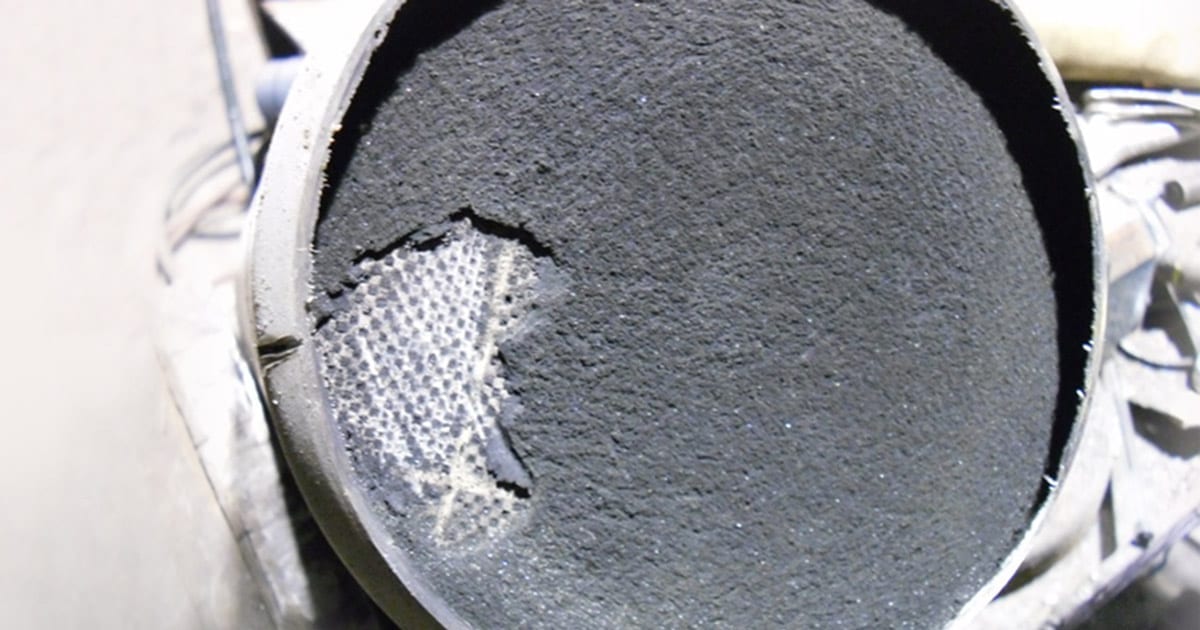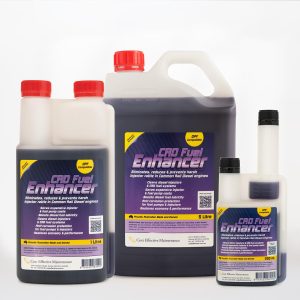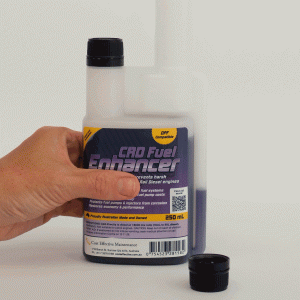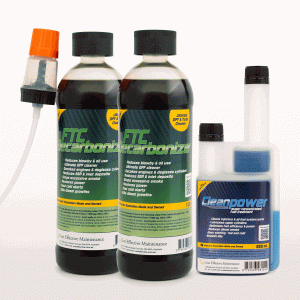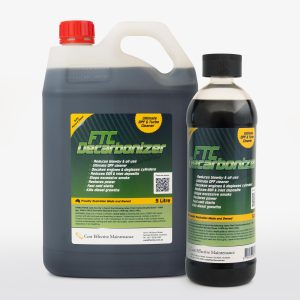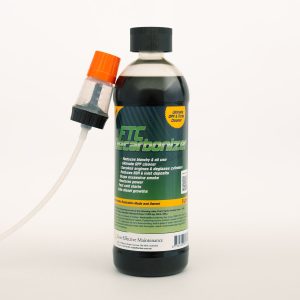Diesel particulate filter problems: How to solve them
A diesel particulate filter (DPF) is an effective means of minimising emissions of dangerous fine particles in exhaust emissions. But, in reality, DPFs are a band-aid remedy, and bring with them a whole new range of expensive, annoying and inconvenient problems.
However, there is already a simple, low cost solution available, which addresses the root cause of these DPF problems. What is required is to clean up the fuel burn, rather than “after treat” it with a diesel particulate filter!
- Improve the combustion process.
- Burn away excess soot and carbon.
- Remove potential DPF Blockages.
- Enable the DPF system to operate correctly.
Achieving this means less soot is produced in the first place. FTC Decarbonizer, is already proven in underground mining applications, acts as a true combustion catalyst to reduce the rate of soot production, and burns off existing soot at much cooler temperatures.
Once introduced into the diesel, less soot (and ash) can accumulate in the DPF, as regeneration occurs naturally during normal engine operations.
“Site trucks at one large West Australian LNG plant are speed limited to 40kph, causing severe issues with frequent diesel particulate filter clogging. By simply dosing the diesel with FTC Decarbonizer, DPF problems in the Isuzu and Cummins engine fleet ceased.”
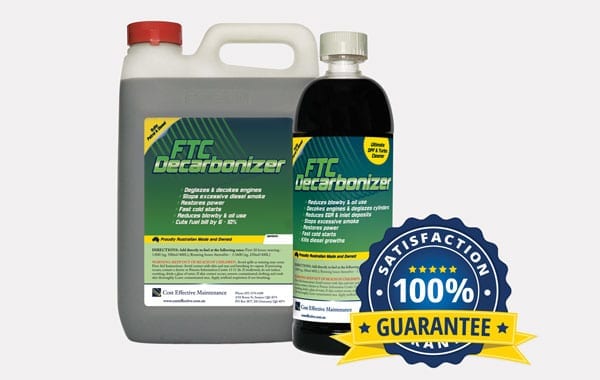
FTC Decarbonizer safely removes soot and carbon from exhaust areas, fixing DPF regeneration problems. Satisfaction Guaranteed.
Simply FTC Decarbonizer to the fuel and DPF problems will be solved.
Diesel Particulate Filter Problems …
DPFs particularly cause issues for non-highway type applications, and the following series of problems can progressively develop…
- The number of “forced regenerations” increase, necessitating the truck to be parked up for 20 minutes at a time, to burn off the soot under higher fuel usage conditions.
- Where such regeneration cycles have become ineffective, DPF cleaning or replacement of damaged units is required, and both are expensive.
- Some excess fuel required for DPF regenerations can pass the rings into the engine oil. This causes excessive fuel dilution of the oil, which in turn, increases the frequency of oil changes.
- Crankcase oil should be free of fuel, and levels above as little as 5% are unacceptable. In practice, fuel dilution of up to 50% is occurring, and this will destroy engines in a very short time.
To counter this series of diesel particulate filter problems, FTC treated diesel results in a reduction in both the total number of soot particles, and the total soot mass produced. Secondly, it forces all carbon in combustion and exhaust spaces, including any soot trapped in the DPF, to combust at temperatures as low as 350C to 400C. Normally, soot will only combust in the 500-600C, and above range.
The FTC catalysed fuel burn permits the cooler soot burn. As soot is the initial binder for ash forming in DPF’s, the amount of ash accumulating is also reduced. FTC Decarbonizer is a very low cost solution, which addresses the root cause of these DPF problems. In doing so, it minimizes the need for DPF regeneration cycles, because less soot is formed, and any accumulated soot is readily combusted under even light duty cycles.
Recommended products to solve diesel particulate filter problems…
-
Diesel Fuel Additives, Our Products
CRD Fuel Enhancer – Fuel Cleaner Additive for Diesel Engines
From $59.00 incl. GSTSelect options This product has multiple variants. The options may be chosen on the product page -
Diesel Fuel Additives, Main-products, Our Products, Petrol Fuel Additives
Engine Decarbonizer Pack
$239.00 incl. GSTSelect options This product has multiple variants. The options may be chosen on the product page -
Bulk Fuel Treatments, Diesel Fuel Additives, DPF Cleaner, Engine Blowby, FTC Decarbonizer, Fuel Additives, Fuel Biocide, Main-products, Marine Fuel Additives, Our Products
FTC Diesel Decarbonizer
From $135.00 incl. GSTSelect options This product has multiple variants. The options may be chosen on the product page

